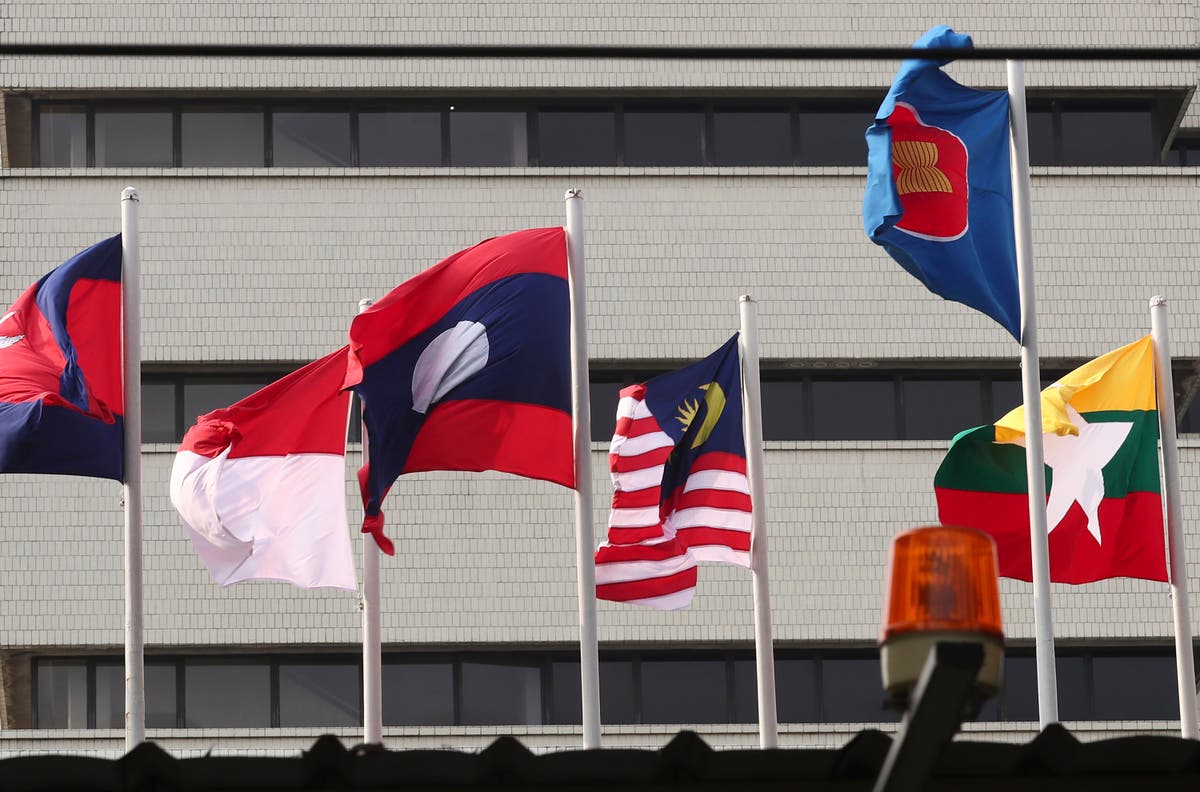
The U.N. special envoy for Myanmar warned Tuesday of “a full-scale civil war” if the powerful military, supporters of the ousted democracy, ethnic groups and other key parties don’t hold a successful dialogue on all issues ranging from the current COVID-19 outbreak to the root causes of the country’s crisis.
Christine Schraner Burgener told a news conference that clashes between the military and local defense forces are continuing, people are frightened and suffering, there is no freedom of speech, the World Bank predicts an 18% drop in GDP this year and the International Labor Organization estimates 2.2 million jobs have been lost since January.
On top of that, she said, Myanmar is currently facing “a severe COVID-19 third wave” with more than 333,000 reported cases, including 3,611 new cases on Monday.
Myanmar for five decades had languished under strict military rule that led to international isolation and sanctions. As the generals loosened their grip, culminating in Aung San Suu Kyi’s rise to leadership in 2015 elections, the international community responded by lifting most sanctions and pouring investment into the country. The Feb. 1 coup followed November elections, which Suu Kyi’s National League for Democracy party won overwhelmingly and the military contests as fraudulent.
Schraner Burgener said Myanmar’s military leader, Senior Gen. Min Aung Hlaing, wants to maintain his grip on power, pointing to the recent declaration naming him prime minister, the annulment of November’s election and fears that Suu Kyi’s party will soon be disbanded.
In her wide-ranging discussions with all sides in Myanmar, she said she realized no sides “will give up and are ready to make any compromises.”
So she said she decided not to wait for the 10-member Association of Southeast Asian Nations known as ASEAN to appoint a special envoy and moved ahead with her proposal for an all-inclusive dialogue that would also include discussions of humanitarian assistance, the plight of Myanmar’s Rohingya Muslim minority and “root causes” — the country’s federal system, constitution, army, election and legal systems, and more.
Over the last two months, Schraner Burgener said, she discussed her proposal with key parties in Myanmar and the international community.
Her proposal also envisions an international observer group including China, India, Japan, Thailand, United States, United Kingdom, Norway, Switzerland, European Union, United Nations and ASEAN, which includes Myanmar.
During her discussions, she said Myanmar’s ethnic armed organizations “were in the majority very positive of this idea” and members of the National United Government, established by elected legislators who were barred from taking their seats when the military seized power on Feb. 1, were “interested in the ideal but clearly would have preconditions to start such a dialogue.”
Schraner Burgener said she had a long conversation with deputy military chief Soe Win on July 16 on many issues including the proposal for a dialogue, but “I didn’t receive an answer,” and since then, “There is no positive feedback from the army on this dialogue, which I really regret.”
Nonetheless, she said, a dialogue will hopefully start through ASEAN and its new special envoy for Myanmar, Brunei’s Second Foreign Minister Erywan Yusof. She said she had a long videoconference Monday with Yusof, who plans to visit Myanmar after consulting key parties, and told him, “He can count on my full support.”
“I also offered to join him, so I hope that the army will be ready also to receive me,” she said, adding that she believes the military keeps saying it’s not ready to meet her not because they don’t want to talk to her but “because people on the ground would be very encouraged by my presence in the country, and that’s probably something which the army doesn’t want to see.”
Schraner Burgener said she remains worried that the country will move in the direction of a civil war if the dialogue, which hopefully will start through ASEAN, “will not be successfully done.”
“We see a lot of violence on the ground,” she said.
Many people are afraid of “the huge violence scale” of the military, she said, but “the people’s defense forces” have also moved from using self-made weapons and “are using now professional weapons.”
“So, I really hope that a dialogue can happen to avoid a breakout of a full-scale civil war,” Schraner Burgener said.






